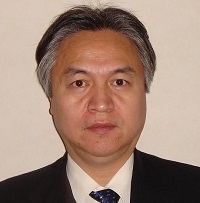KEYNOTE SPEAKER

Prof. Chi Man Pun
IEEE Senior Member, University of
Macau, Macau, China
BIO: Prof. Pun received his Ph.D. degree in Computer Science and Engineering from the Chinese University of Hong Kong in 2002, and his M.Sc. and B.Sc. degrees from the University of Macau. He had served as the Head of the Department of Computer and Information Science, University of Macau from 2014 to 2019, where he is currently a Professor and in charge of the Image Processing and Pattern Recognition Laboratory. He has investigated many externally funded research Projects as PI, and has authored/co-authored more than 200 refereed papers in many top-tier Journals (including T-PAMI, T-IFS, T-IP, T-DSC, T-KDE, and T-MM) and Conferences (including CVPR, ICCV, ECCV, AAAI, ICDE, IJCAI, MM, and VR). He has also co-invented several China/US Patents, and is the recipient of the Macao Science and Technology Award 2014 and the Best Paper Award in the 6th Chinese Conference on Pattern Recognition and Computer Vision (PRCV2023). Dr. Pun has served as the General Chair for the 10th &11th International Conference Computer Graphics, Imaging and Visualization (CGIV2013, CGIV2014), the 13th IEEE International Conference on e-Business Engineering (ICEBE2016), and the General Co-Chair for the IEEE International Conference on Visual Communications and Image Processing (VCIP2020) and the International Workshop on Advanced Image Technology (IWAIT2022), and the Program/Local Chair for several other international conferences. He has also served as the SPC/PC member for many top CS conferences such as AAAI, CVPR, ICCV, ECCV, MM, etc. He is currently serving as the editorial board member for the journal of Artificial Intelligence (AIJ). Besides, he has been listed in the World's Top 2% Scientists by Stanford University since 2020. His research interests include Image Processing and Pattern Recognition; Multimedia Information Security, Forensic and Privacy; Adversarial Machine Learning and AI Security, etc. He is also a senior member of the IEEE.

Prof. Yen-Wei Chen
Ritsumeikan University, Japan
BIO: Yen-Wei Chen received the B.E. degree in 1985 from Kobe Univ., Kobe, Japan, the M.E. degree in 1987, and the D.E. degree in 1990, both from Osaka Univ., Osaka, Japan. He was a research fellow with the Institute for Laser Technology, Osaka, from 1991 to 1994. From Oct. 1994 to Mar. 2004, he was an associate Professor and a professor with the Department of Electrical and Electronic Engineering, Univ. of the Ryukyus, Okinawa, Japan. He is currently a professor with the college of Information Science and Engineering, Ritsumeikan University, Japan. He is the founder and the first director of Center of Advanced ICT for Medicine and Healthcare, Ritsumeikan University, Japan.

Prof. Seokwon Yeom
Daegu University Gyeongsan, South Korea
BIO: Seokwon (Sekwon) Yeom is currently a professor of Daegu University, School of ICT Convergence in South Korea. His research interests are intelligent processing of image and optical information, machine learning, and target tracking. He has researched on multiple target tracking for airborne early warning, three-dimensional image processing with digital holography and integral imaging, photon-counting linear discriminant analysis and nonlinear matched filter, millimeter wave and infrared image analysis, low-resolution object recognition, and smart surveillance with unmanned vehicle systems. He is a member of the editorial board of Applied Sciences, a board member of the Korean Institute of Intelligent Systems, and a member of the board of directors of the Korean Institute of Convergence Signal Processing. He has served as program chair of the ICCCS2015, ISIS2017, iFUZZY2018, and ICCCS2019. He was a visiting scholar at University of Maryland in 2014 and a director of Gyeongbuk techno-park specialization center in 2013. He has a Ph.D. in Electrical and Computer Engineering from the University of Connecticut in 2006. He is now performing several research projects granted by Korea government and Daegu University.